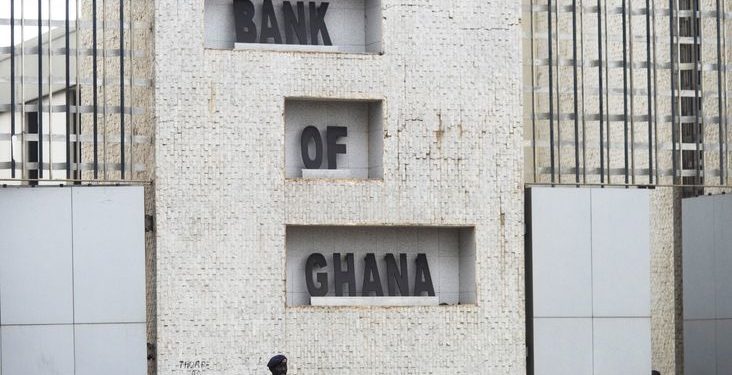In a candid exposition at the Chartered Institute of Bankers 2023 Governor’s Day, Dr. Ernest Addison, Governor of the Bank of Ghana, revealed the profound challenges the economy faced following the outbreak of the Covid pandemic, the spillover effects of the Russian-Ukraine war as well as the country’s exit from the international capital market.
The Governor noted, Ghana’s annual external debt service payments and energy-related outlays soared between 3 to 4 billion US dollars annually in 2020. A significant portion of these funds was strategically earmarked to navigate debt liabilities, particularly energy debt payments.
However, the absence of market access for fresh financing precipitated a liquidity crisis, cascading into a balance of payments debacle.
Within a mere two months, the Bank of Ghana witnessed a staggering depletion of approximately US$500 million in reserves, coupled with a substantial surge in the government’s overdraft facility.
It wasn’t until July 2022 that relief arrived, with Afreximbank injecting a crucial US$750 million into the system.
The dire circumstances, the Governor noted, prompted the Government to turn to the International Monetary Fund (IMF) for support, a decision formalized in July 2022.
Dr. Addison underscored the pivotal role played by the Bank of Ghana in supporting the economy during this tumultuous period, lamenting the lack of public acknowledgment for its resilience and strategic interventions.
The Bank played a critical role to support the economy during the crisis period with distinction. It is very clear the bank’s role in supporting the economy through this crisis has not been fully understood and in some cases deliberately misinterpreted. The Bank came under severe attack across the media space, culminating in an organised demonstration against the institution,” he stated.
Against the backdrop of relentless economic storms over the past six years, Dr. Addison lauded the banking sector’s unwavering progress. From the comprehensive banking clean-up between 2017 and 2019 to the disruptive impacts of the COVID-19 pandemic in 2020 and the subsequent economic crisis in 2022, the banks have displayed remarkable stability.
Despite facing criticism and organized demonstrations, the Bank of Ghana remained a pillar of strength, providing clear leadership and policy focus to navigate the industry through uncertainties and volatilities. Dr. Addison urged Ghanaians to recognize and applaud the resilience of the Bank of Ghana amidst the myriad challenges.
It is therefore most appropriate, I believe, to state that Ghanaians should rather applaud and commend the resilience of the Bank of Ghana,” he posited.
Reflecting on the macroeconomic fundamentals, Dr. Addison highlighted the transformative impact of sound policies, prudent economic management, and extensive banking sector reforms. The period between 2017 and 2019 saw a robust response to challenges, including an increase in minimum capital requirements for banks, revocation of licenses for insolvent institutions, and a comprehensive overhaul of regulatory frameworks.
By the end of 2019, Ghana’s macroeconomic fundamentals were firmly anchored, boasting single-digit inflation, strong growth, a stable exchange rate, and a significantly improved current account. The three-year banking sector reforms, concluded in 2019, not only enhanced capitalization, liquidity, and profitability but also fortified operational efficiency.
In acknowledgment of the challenges faced during the closure of defunct banks, Dr. Addison emphasized the crucial role played by the Bank of Ghana and the government’s support in averting a systemic collapse of the banking sector.
